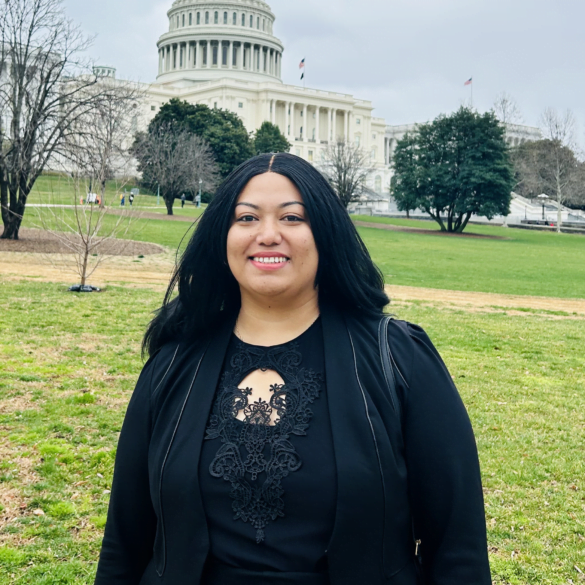If you think companies like Tesla, Amazon, and Facebook made it to the top all on their own – think again.
Behind every billion-dollar brand is a government that helped fund it, protect it, or give it the space to grow.
Now the question is:
Can Pacific governments do the same for their own innovators?
The answer is yes – and the time to act is now.
The Silent Engine of Innovation: Government Support
In the U.S., Elon Musk’s Tesla got a $465 million loan from the Department of Energy. That wasn’t charity – it was a strategic investment in clean tech.
Amazon has received billions in tax breaks and subsidies to build fulfillment centers across America. Facebook wouldn’t exist without early internet infrastructure built by U.S. government research agencies.
Other countries are even more aggressive:
- China insulated its startups and poured money into them. Result? Alibaba, Tencent, BYD.
- Singapore built one of the world’s most supportive environments for tech startups, with direct grants, tax incentives, and digital-first policies.
- Germany funded apprenticeships and export financing to keep companies like Siemens globally competitive.
These governments understood something critical:
If you want innovation, you have to invest in it.
What About the Pacific?
Pacific Island Countries (PICs) have brilliant entrepreneurs, natural assets, and urgent problems that require local solutions. But those ideas often die before they get off the ground – not because they’re flawed, but because the system isn’t built to support them.
Still, a wave of tech-enabled and impact-driven Pacific businesses is emerging:
- Climate adaptation startups building water systems, weather resilience tools, and renewable energy solutions.
- Digital platforms connecting farmers and artisans to global markets.
- Youth-led tech groups running coding bootcamps, digital storytelling platforms, and financial inclusion apps.
- Indigenous-led businesses merging culture, ecology, and enterprise – from sustainable tourism to ethical trade.
These aren’t Silicon Valley unicorns – but they’re doing something just as powerful:
solving real problems for real people in the Pacific.
Governments Should Stop Trying to Do It Alone
Many governments in the Pacific are trying to address critical issues – like climate resilience, unemployment, and digital access – through internal programs or bureaucratic rollouts. But trying to solve these challenges alone doesn’t work.
Public solutions are often slow, expensive, and disconnected from community realities. Meanwhile, there are already private Pacific Islander-led businesses actively solving these problems – quickly, creatively, and with real impact on the ground.
Instead of trying to replicate or compete with these efforts, governments should fund, empower, and scale the businesses already doing the work.
And here’s a key reason why:
Governments change. Elections bring in new ministers, new priorities, and new delays. Programs get cut, leadership turns over, momentum resets. But private businesses – especially those founded with a long-term mission – remain focused, consistent, and deeply connected to the communities they serve.
Where governments are temporary, purpose-driven businesses are persistent. That’s exactly the kind of engine Pacific economies need.
What Needs to Happen Next
To unlock the full potential of these businesses, governments must get in the game. Here’s how:
1. Launch a Pacific Innovation Fund
Offer grants and seed capital for startups solving core problems in energy, food security, disaster resilience, and digital access.
2. Upgrade Digital Infrastructure
Ensure reliable, affordable broadband across islands. A startup with connectivity can sell to the world – without leaving home.
3. Streamline Business Regulations
Cut the red tape and create fast-track programs for businesses working in priority sectors like tech and local manufacturing.
4. Support Procurement and Visibility
Governments should actively partner with and invest in platforms that connect and empower local innovators – then use their reach to elevate those solutions on the world stage. Every ministry holds the power to turn homegrown ideas into regional and global opportunities.
5. Protect and Promote Cultural IP
Help Pacific businesses safeguard and scale cultural knowledge, practices, and designs – without exploitation.
6. Back Diaspora-Founded Businesses with Pacific Impact
Too often, funding and policy support are limited to organizations physically based within the Pacific Islands. While local presence is important, this approach overlooks a major asset: the Pacific diaspora.
Many Pacific Islanders leave their home countries in search of better opportunities – for education, income, or access to global resources. But they don’t leave their identity behind. They carry their language, values, and sense of duty to their communities, no matter where they are in the world.
In doing so, they gain new skills, fresh perspectives, and global experience – in tech, education, finance, media, and innovation – that are often out of reach for those still at home due to infrastructure gaps or funding barriers.
These diaspora Pacific Islanders have:
- Access to global networks and capital that local businesses may not.
- The ability to connect international markets to Pacific products, services, and talent.
- The perspective to blend traditional knowledge with global innovations.
- A deep cultural motivation to reinvest in their homelands, often driven by family ties and ancestral responsibility.
Investing in diaspora-founded businesses allows those with global exposure to bring home powerful solutions – along with the cultural lens needed to implement them with respect and relevance.
Instead of limiting eligibility to NGOs or only those physically based in the Pacific, governments and funding agencies should broaden support to include any business founded by Pacific Islanders – no matter where they are – as long as their work creates measurable impact in the region, especially if they are already registered in the Pacific.
This diaspora-inclusive approach would unlock innovation, investment, and economic growth across borders, while staying deeply rooted in Pacific priorities and values.
The future of the Pacific doesn’t only live on the islands – it also lives in Pacific minds and hearts scattered across Aotearoa, Australia, the U.S., and beyond. Let’s bring that future home.
Real Impact Is Already Happening
Across the region, businesses are already showing what’s possible when mission meets momentum:
- In Fiji, local tech groups are training women and youth in app development and AI literacy.
- In Vanuatu, ecotourism operators are blending ancestral knowledge with carbon offset models.
- In Samoa and Tonga, diaspora-linked businesses are streamlining remittances and reinvesting in community enterprises.
- Across Papua New Guinea, agritech platforms are digitizing supply chains for cocoa, coffee, and fishers.
- And in multiple Pacific nations, initiatives like Siuhuu are uniting Pacific people on a single platform – building a powerful digital marketplace where Islanders everywhere can connect, sell their products and services, and share their culture with the world. It’s a fusion of Indigenous knowledge, technology, and economic empowerment – created by Pacific people, for Pacific futures.
These aren’t theories – they’re proof points.
But most of them are surviving, not thriving.
With the right policy shift, they could become the Tesla or Amazon of the Pacific – not in size, but in impact.
Final Thought
Big change starts small. But it doesn’t scale without help.
If Pacific governments want stronger economies, more resilient communities, and global relevance, they must do what the U.S., Singapore, and China did decades ago:
Bet on their own people. Fund their ideas. Remove the barriers. Back the builders.
There’s a generation of Pacific entrepreneurs already stepping up.
Now it’s time for leadership to step up too – and stand beside them, not in their way.
Related posts
Meet the Founder

Akanesi Kaufusi, also known as Akanesi Tohotoa, a Tongan native, embodies resilience and vision, having transformed her personal challenges into a pioneering business venture. Akanesi moved from Tonga to New Zealand to further her studies, where she earned degrees in Business and Theology. During this period, she faced difficulties locating Pacific Island-owned businesses in her vicinity. This struggle planted the seed for what would become her groundbreaking initiative.
Learn more

